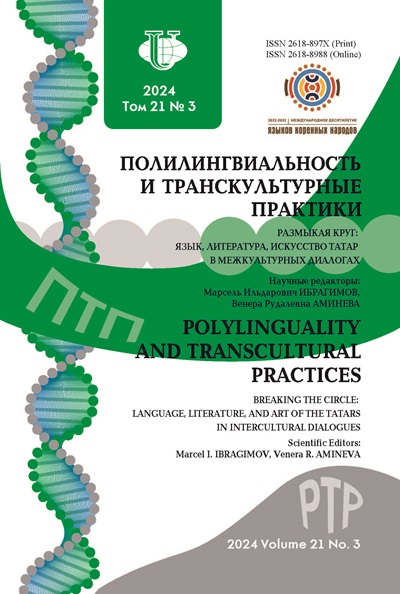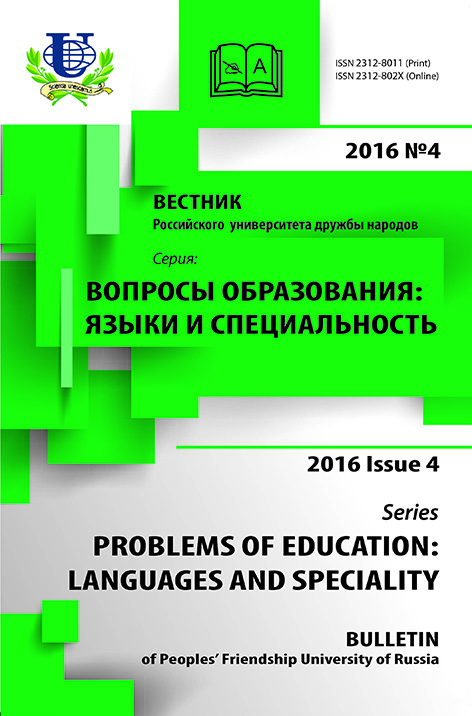РАЗВИТИЕ ЯЗЫКОВ В КАЗАХСТАНЕ
- Авторы: Мажитаева Ш.1, Ахметова А.1, Жунусова А.1, Ажигенова С.1
-
Учреждения:
- Kaрaгандинский госуниверситет им. Е.А. Букетова
- Выпуск: № 4 (2016)
- Страницы: 50-56
- Раздел: Статьи
- URL: https://journals.rudn.ru/polylinguality/article/view/14659
Цитировать
Полный текст
Аннотация
Об авторах
Шара Мажитаева
Kaрaгандинский госуниверситет им. Е.А. Букетоваул. Муканова, 1, корпус 8, Караганда, Казахстан, 100026
Акбота Ахметова
Kaрaгандинский госуниверситет им. Е.А. Букетоваул. Муканова, 1, корпус 8, Караганда, Казахстан, 100026
Алтынай Жунусова
Kaрaгандинский госуниверситет им. Е.А. Букетоваул. Муканова, 1, корпус 8, Караганда, Казахстан, 100026
Салтанат Ажигенова
Kaрaгандинский госуниверситет им. Е.А. Букетоваул. Муканова, 1, корпус 8, Караганда, Казахстан, 100026
Список литературы
- Abisheva K.M. Socio-linguistic contactology. Almaty: Gylym, 2001. 426 p.
- Ahmetzhanova Z.K. On some aspects of trilingualism. Threeunity of Languages: problems and prospects. The materials of the Republican scientific-practical conference devoted to the 20-th anniversary of Independence of the Republic of Kazakhstan. Karaganda, 2011. P. 7-10.
- Bitis A. Musings from Kazakhstan: the Trilingual Policy. http://aitmatov-academy.org.uk/events/ multilingual_education_in_kazakhstan.html
- Khasanuly B. Languages of the peoples of Kazakhstan: from silence to the development strategy (socio-psycholinguistic aspects). Almaty: Arda, 2007. Pp. 356-357.
- Kubeyev Y., Zhetpisbayeva B. & etc. The concept of multilingual education. Karaganda: Publishing house of Karaganda SU, 2008. 38 p.
- Law of the republic of Kazakhstan. On languages in the Republic of Kazakhstan (as of the legislation on March 13, 2000). Astana: IKF «Foliant», 2000. P. 8-9.
- Mazhitaeva Sh., Balmagambetova J. & Khan N. Competence in multilingual Education. European Researcher. Vol. 31. № 10-1. P. 1713-1716.
- Shayakhmetova A. Formation of polylingual educational environment within the higher educational system. Threeunity of Languages: problems and prospects. The materials of the Republican scientific-practical conference devoted to the 20-th anniversary of Independence of Republic of Kаzakhstan. Karaganda, 2011. P. 10-12.
- State Program of Education Development in the Republic of Kazakhstan for 2011-2020. Astana, 2011.
- Toassi P.F.P. & Mota M.B. Lexical access of bilinguals and multilinguals. Acta Scientiarum.Language and Culture. 2015. Vol. 37. № 4. P. 393-404.
- Zhetpisbayeva B., Khan N. & etc. The standard program in basic Russian language for non-language specialties. Karaganda: Publishing house of Karaganda SU, 2010. 57 p.
- Zhetpisbayeva B., Aitpayeva B. & etc. The standard program in basic Kazakh language for non-language specialties. Karaganda: Publishing house of Karaganda SU, 2010. 59 p.
- Zhetpisbayeva B., Asanova D. and etc. The standard program in basic English for non-language specialties. Karaganda: Publishing house of KarSU, 2010. 57 p.















